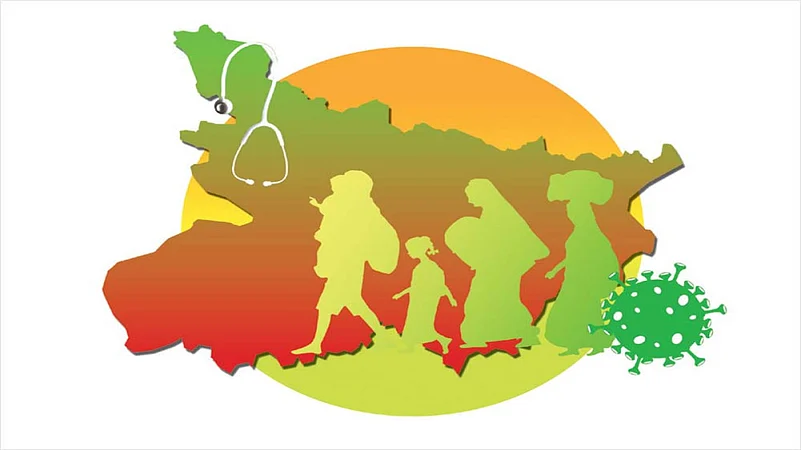Last year, during the first wave of the Covid outbreak, while sitting in faraway Mumbai, I often wondered how my home state Bihar was able to manage the pandemic situation so well despite having no proper healthcare infrastructure. Relatives from my native East Champaran district were a boastful lot: Biharis have a superior immune system, they are the grassroots people with a hotline to Mother Nature, their per capita consumption of vitamin D is better than that of the residents of Rann of Kutch, corona is a damn metro thing and what not! Do you think the coronavirus can do anything to us, they asked. In all seriousness, none of it sounded like empty boasts; they actually believed in such theories. And I have reasons to suspect that the Bihar government also believed in the same hypothesis. Going by the flagrant lack of preparedness on its part in dealing with the second wave of COVID-19 cases now, it seems they went about with their daily routine with a conviction that ek Bihari sab virus par bhaari (one Bihari is stronger than all viruses).
During the first wave, I used to get frequent calls from my friends and relatives in Bihar as they were worried about the exponential rise in coronavirus infections in Maharashtra. It was not surprising since my native village and the surrounding areas were untouched by this disease. In those days, my father chose to leave Mumbai for our village in Bihar since not a single COVID-19 case had been reported from within 100 miles of our village. It was considered to be a safer option than Mumbai. A few months later, the scenario has reversed as Covid has penetrated not only the district headquarters but also the remote villages. Mumbai, in comparison, looks safer than Motihari now.
With the surge in cases in Delhi and other big cities, the non-resident Biharis, mostly labourers, are flocking back to their hometowns and native villages these days. But, there is no system in place to test them or to quarantine them as per COVID-19 protocol, which exposes a sizeable population to this deadly virus. Recently, some of my relatives travelled to Bihar by air as well as by train, but nobody bothered to stop them either at the airport or the railway station to check their temperature or oxygen level. Maybe the government still thinks that the second wave of the pandemic “too shall pass”, give or take a few northward spikes on the death roll.
Even after the implosion of Covid cases in the interiors of Bihar, the number of tests remains woefully inadequate. Although symptoms like cough and cold, fever and even shortness of breath are being reported from every nook and cranny, they are usually passed off as cases of typhoid. In the absence of a functional primary health centre or even a qualified doctor in the vicinity, the villagers remain faithful to the good, old, jhola chhap quacks, also known as DWDs (doctors without degrees), who have served them for generations with their made-to-order concoctions and ready-made cures. If they call Covid typhoid, how can the villagers dare question their diagnosis? Their prescription may not win the approval of WHO or MCI mandarins, but these self-styled doctors—some of them even claim to have the expertise of a surgeon—remain unapologetic. After all, they are the ones who come to the rescue of poor villagers in the time of need or at odd hours, when an MBBS degree holder is sleeping away in the comforts of his home, at least 50 miles away.
We may talk about jhola chhap doctors with contempt. In reality, they are the backbone of the primary healthcare system in impoverished states like Bihar. In the villages, where there are no government medical centres or private clinics, they offer basic and affordable health services. Additionally, they also work like a 24x7 mobile chemist shop storing basic medicines like paracetamol, Digene, painkillers etc. Who knows they may soon have Remdesivir at an affordable price too.
An average villager down with symptoms of Covid is not willing to go to public hospitals since he believes his chances of survival at home are more. There’s a similar disdain for private hospitals too—for the way they fleece patients. And yet, there is a silver lining. Most people in my home district believe that the situation in Bihar is still better than many states—at least, it is not as worse as UP. Look no further!
Abdullah Khan is a novelist, screenwriter and banker





















